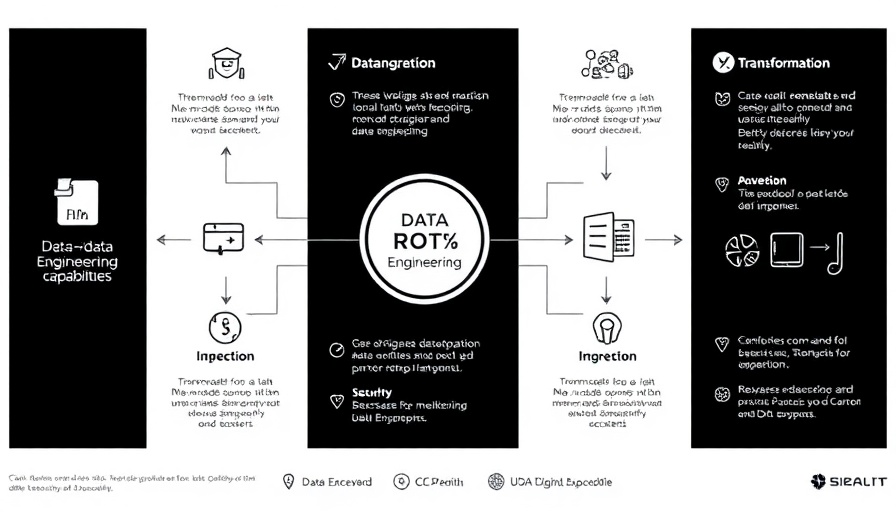
The Rise of Data Engineering in Modern Business
As companies continue to navigate the complexities of the digital landscape, data engineering has emerged as a critical pillar for success. With the escalating growth of data, businesses must harness this information to drive innovation and competitive advantage. This article delves into the need for a Data Engineering Center of Excellence (CoE) and offers insights on how executives at fast-growing companies can strategically build one to facilitate seamless data utilization.
Why Establish a Data Engineering Center of Excellence?
A Data Engineering CoE acts as a centralized body that enhances the efficiency, quality, and security of data operations. As noted in recent studies, organizations with a Data CoE are significantly more successful in achieving their data-related business goals—33% more, in fact. This effectiveness stems from a structured approach to managing data, allowing firms to overcome traditional silos and fostering an environment where data can be leveraged for insightful decision-making.
Benefits of a Dedicated Data Engineering Team
Setting up a Data Engineering CoE establishes a robust framework that yields numerous benefits:
- Improved Data Quality: By enforcing strict data quality standards across departments, data integrity is maintained, ensuring that the information is accurate and reliable.
- Enhanced Collaboration: A centralized team facilitates knowledge sharing across different areas of the organization, breaking down silos and enabling collaborative strategies that drive business results.
- Cost Efficiency: Centralized data operations lead to reduced overhead costs associated with fragmented data processes while improving workflow in data analytics and reporting processes.
Key Components for Establishing Your Data Engineering CoE
Based on insights from various sources, including research by Revolent and Towards Data Science, several core components must be established to create a successful Data CoE:
1. Clearly Defined Objectives
Establish measurable goals for your CoE, whether that’s improving data quality, enhancing analytics capabilities, or ensuring compliance with data legislation. Such objectives should align with your organization’s strategic vision.
2. Integration of Tools and Technologies
Investing in the right technology stack is crucial for data management. Tools for data ingestion, ETL processes, and data visualization should be chosen based on scalability and the ability to integrate seamlessly with existing systems.
3. Creating a Skilled Team
The foundation of a Data CoE is its people. Hire data engineers, data analysts, and data governance experts who possess the necessary skills and knowledge to support your objectives. Their collective expertise will be invaluable in enhancing your data strategy.
4. Data Governance Framework
Implementing a solid data governance policy will ensure data security and compliance with regulations. This framework should outline roles, responsibilities, and procedures for data management across various departments.
5. Continuous Improvement Initiatives
The landscape of data is constantly changing; therefore, continuous upskilling and adaptation are necessary. Encourage regular training for your team to stay current with data technologies and methodologies, thus enhancing the overall proficiency of your CoE.
Conclusion: The Future of Data Excellence
Investing in a Data Engineering Center of Excellence is not merely about managing data; it’s about transforming data into a strategic asset that drives organizational success. The growing demand for efficient, high-quality data operations highlights the need for companies, especially those in fast-paced digital transformation, to equip themselves with structured data systems. By prioritizing their data strategy through a CoE, organizations can ensure they are well-positioned to meet future challenges in an increasingly data-driven world.
 Add Row
Add Row  Add
Add 




Write A Comment